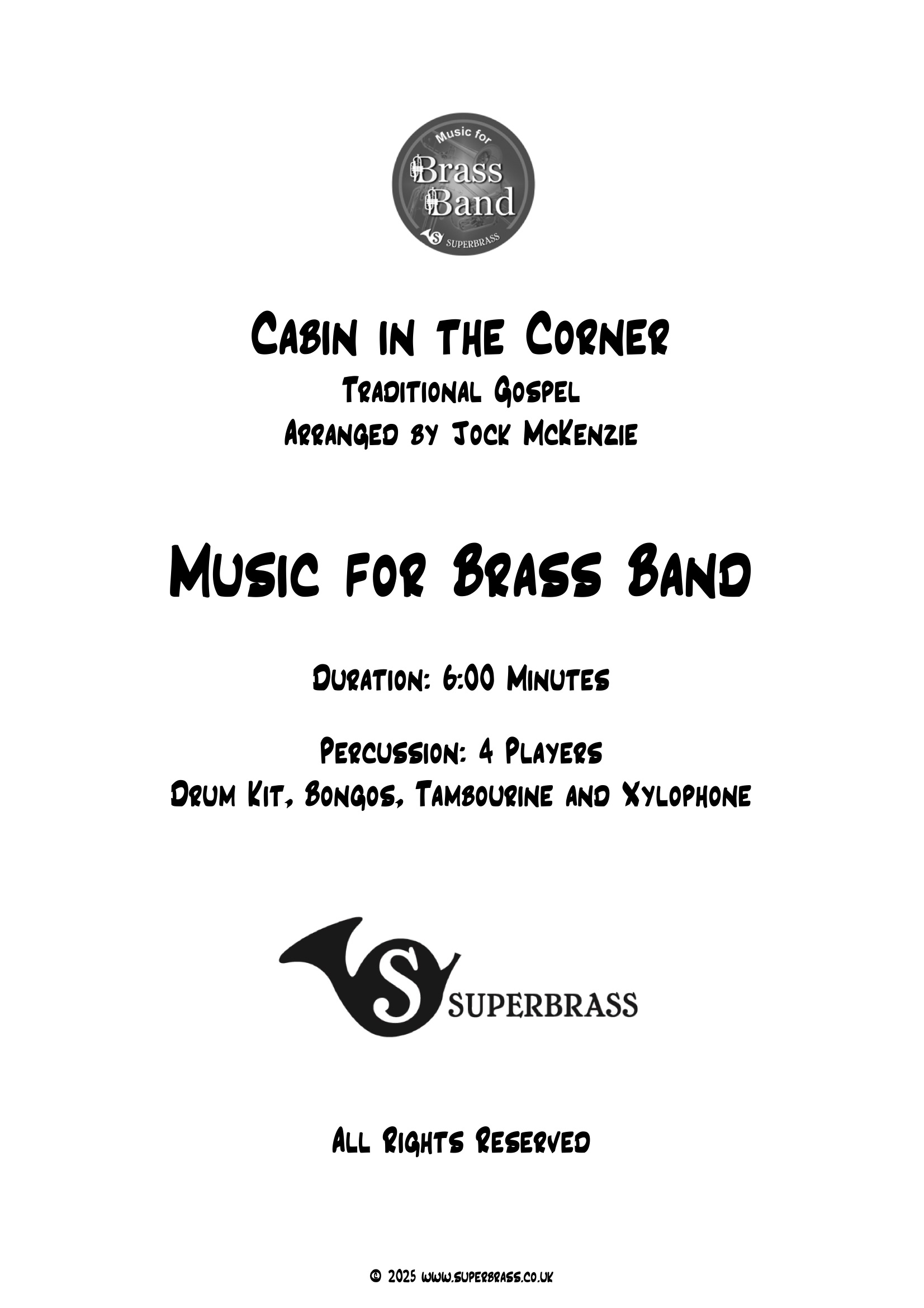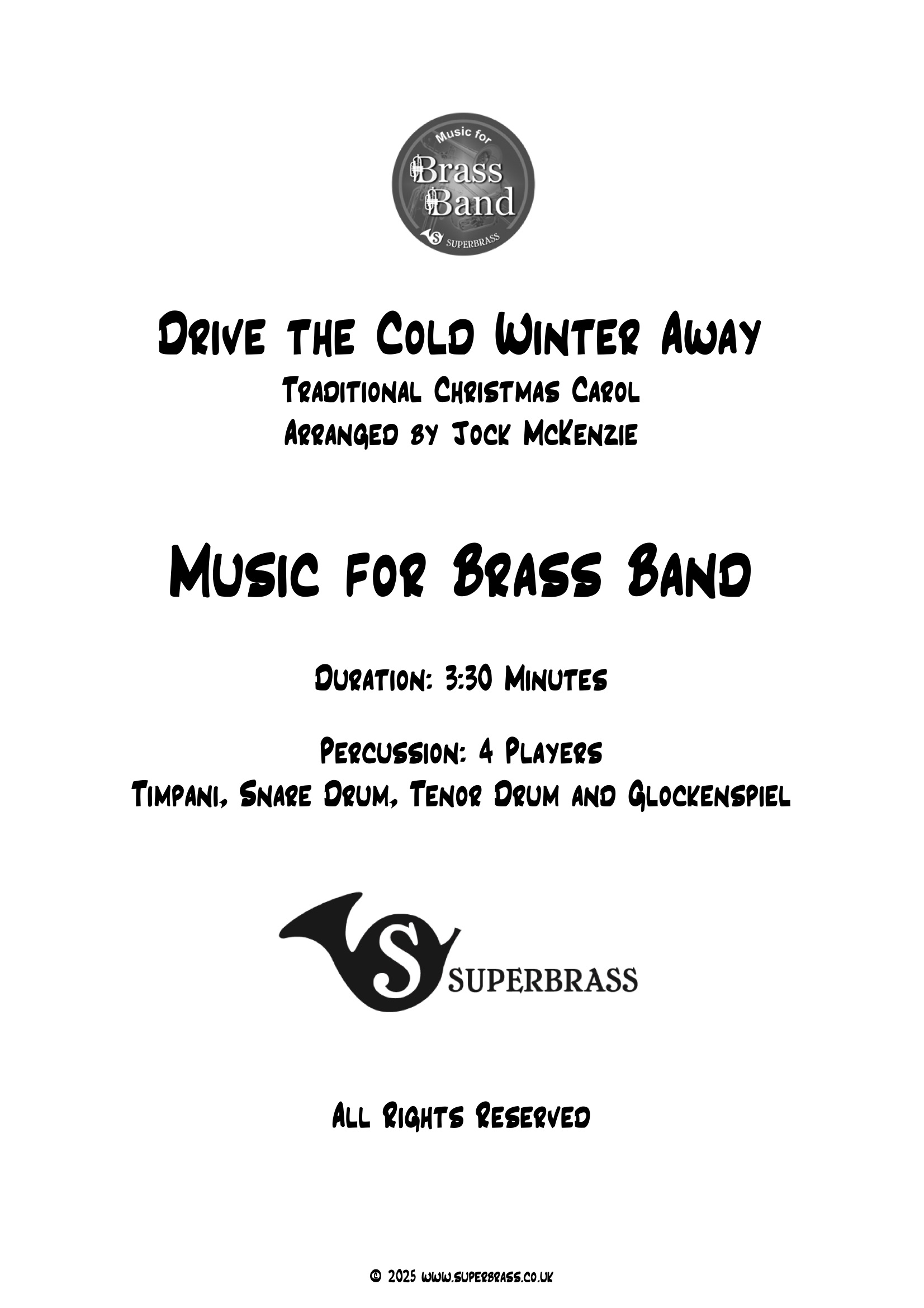-
 £30.00
£30.00Blue Bombazine - Terry Johns
The word Bombazine is derived from the obsolete French word Bombasin. Largely made in the Norwich area, Bombazine is a twilled fabric made of silk used mainly in dress making and popular in England in the reign of Elizabeth I. The image and feel of warm, smooth, opulent silk is aptly suited to a solo feature for tuba. Wing Commander Duncan Stubbs and the RAF Music Service commissioned Blue Bombazine for solo tuba and brass in 2014, for Senior Aircraftman Jonathan Gawn and the RAF Central Band. It was first performed at The Royal Northern College of Music in Manchester, on the 11th April 2015 at the British Festival of Wind Bands. The music is written in the jazz idiom with a testing solo part. It is available with brass band accompaniment or brass dectet. There is also a "recital" version available for tuba and piano.
-
 £30.00
£30.00Brass Braziliana - Brass Braziliana
The Samba has a special significance in Brazilian musical culture and it is symbolic of sheer joy and energy. Music is a mix of communication and energy and this work is designed to allow the players to generate that energy, thus communicating it to the audience. That infectious drive and musical energy will be a high point of any live performance or recording.
-
 £30.00
£30.00Building on Sand - Jock McKenzie
This piece was composed with the intention of replicating some of the sounds of the New Orleans Brass Bands; particularly those whose music has a funky, riff-based edge to their sound e.g. the Hot 8, Rebirth, Dirty Dozen and Soul Rebels brass bands. As well as elements of the second line parade, the music also has a full-on, swing out section.
-
 £30.00
£30.00Cabin in the Corner - Traditional Gospel
Initially made famous by Hank Williams and inspired by the arrangement that appears on James Morrison's Gospel Collection Volume 1 album, released in 2006.
-
 £30.00
£30.00Creature's Comfort - Jock McKenzie
This piece was written with the intention of being either an encore or end of set number; not a full-on technical 'tour de force' but rather a few minutes of 'comfort & chill' music consisting of a Blues / Gospel feel with a bit of Do-Wop thrown in for good measure.
-
 £30.00
£30.00Dapperidoo - Jock McKenzie
The composition of "Dapperidoo" was inspired by the writing of P.G. Wodehouse and aims to create an ambience of humour and faux sophistication in the 1920's style. "Dapperidoo" is a nonsense word typically expressed by some of Wodehouse's more hapless characters.
-
 £30.00
£30.00Deep River - Traditional
Deep River is a spiritual of Afro-American origin.
-
 £30.00
£30.00Ding Dong Merrily on High - Traditional
The popular French tune of this carol first appeared as a secular dance named "Branle de L'Official". It appeared in 'Orchesographie', a collection of dances published in 1589 and written by Jehan Tabouret (pen name Thoinot Arbeau). The established lyrics were written by the English composer George Ratcliffe Woodward and first published in 1924; appearing in the Cambridge Carol Book.
-
 £30.00
£30.00Django - Jock McKenzie
Django is inspired by the sounds of 'Hot Club Jazz'. The origins of this style also known as Gypsy Swing or Jazz Manouche were to be found in France in the 1930s. Indeed, the most famous group, based in Paris was the "Quintette du Hot Club de France" and featured in its ranks the legendary guitarist Django Reinhardt and violinist Stephane Grappelli. My composition Django seeks to provide a 'beginners guide' to some of the typical elements of this musical style: After a 'faux improvised' opening flourish, the main theme is in the characteristic minor key, including use of arpeggio figures to point the direction of the melodic line. The melodies throughout the piece are presented in a duet-like manner, spaced in intervals of 3rds and 6ths. The accompaniment based strongly around the minor 6th chords is designed to imitate the role of the rhythm section in a typical gypsy swing band.
-
 £30.00
£30.00Drive the Cold Winter Away - Traditional
This carol first appeared in print in the early seventeenth century, being found in various notable collections; Playford's "The English Dancing Master", the "Samuel Pepys Collection" and the "Roxburghe Collection". Whilst the music is thought to have come from an earlier era the dance tune ("When Phoebus Did Rest"), the words were first printed as a broadside c.1625. As a carol, the lyrics discuss various seasonal festivities during 'Christmastide'. Alternative titles for the same carol include "In Praise of Christmas" and "All Hail to the Days".
Searching for Wind Band Music? Visit the Wind Band Music Shop

Sign-up to our mailing list for the latest Brass Band music releases & special offers.
Tel: (07852) 519 763 | International: +44 785 251 9763 | Email: [email protected]
Use the search box below to search for music for
Brass Band | Brass Ensemble | Junior Band | Flexi Band | Solos with Piano | Practice & Solo Books
Brass Band | Brass Ensemble | Junior Band | Flexi Band | Solos with Piano | Practice & Solo Books